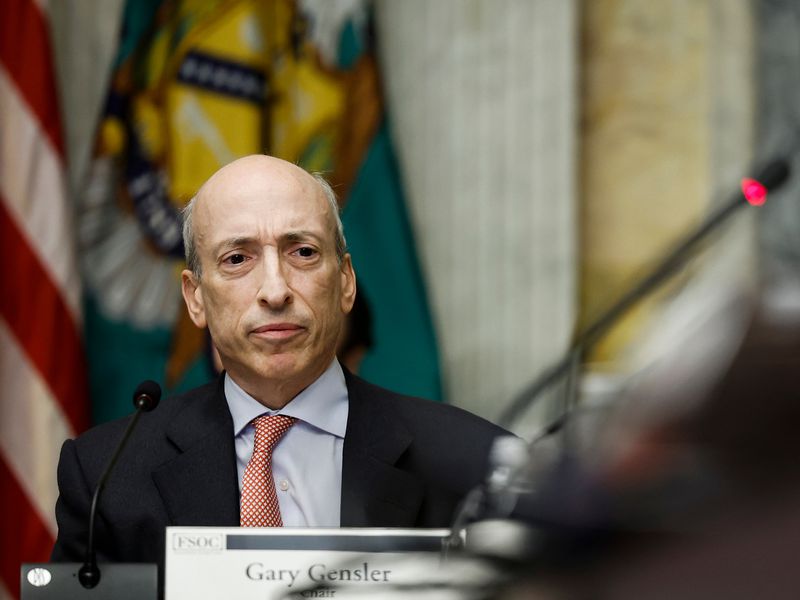Blockchain Faces Big Challenges But the Opportunity Is Enormous
Don Tapscott, Executive Chairman of the Blockchain Research
This post is part of CoinDesk’s 2019 Year in Review, a collection of 100 op-eds, interviews and takes on the state of blockchain and the world. Don Tapscott is the author of 16 books, most recently with his son Alex, Blockchain Revolution. He is Executive Chairman of the Blockchain Research Institute.
In 2019 the blockchain revolution ground to a halt. At least that’s the word from those who should know.
A recent Gartner Group report called it “blockchain fatigue.” Other pundits echoed the view that pilots have fizzled out, few implementations have gone into production, and blockchain is likely to be a marginal technology.
Empirically, this view is incorrect. Our research shows hundreds of production systems underway across a dozen industries. Most of these are based on Ethereum, Hyperledger, or Corda but other platforms are emerging.
This all sounds like “full steam ahead,” not “blockchain burnout.” So, what’s going on here?
1. Blockchain has a PR problem
The words blockchain or crypto still conjure up images of bad actors, criminals, and get-rich-quick hucksters using a new technology to commit age-old frauds—and there has been plenty of that. Meanwhile, parochial infighting and juvenile squabbling has reflected poorly on the ecosystem as a whole.
Also, institutions such as the Chamber of Digital Commerce are proving themselves crucial allies for governments hoping to strike the right regulatory balance. We’re doing our part at BRI by highlighting use-cases and the need for governance and cooperation and change at the societal level. Extraordinary leaders like SEC Commissioner Hester Piece, the Bank of England’s Mark Carney, the Commodity Futures Trading Commission’s former chair Chris Giancarlo, and nominee for Democratic presidential candidate Andrew Yang have emerged as advocates. Momentum is building.
2. Blockchain is running head-on into the system of laws, regulations, and structures that govern society.
Freedom of speech and information is protected by the US Constitution to be open. But when it comes to assets, all our systems of laws and governments are designed to keep these closed, proprietary, and owned by the powerful. It’s no wonder blockchain and crypto are taking a long time. They’re confronting many fundamentals of how our economy and society work.
As Giancarlo said in a recent interview:
“The late 20th Century digitization of information through the Internet took place in a regulatory ‘light’ zone due to the US Constitution’s protection of speech from Federal government interference. Conversely, the early 21st Century digitization of value is taking place in regulatory ‘heavy’ zone because of the long-established authority of US state and federal governments to protect property rights, including those of consumers of financial services (banks, trust companies and other financial service providers have been subject to both state and Federal regulation for decades). As a result, the practices that guided the digitization of information (i.e., ‘Don’t ask permission, ask forgiveness’) when used for the digitization of property rights are particularly provocative to the established legal and regulatory order, as we have seen with initial coin offerings.”
Regulation represents by far the most significant hurdle for blockchain innovators, according to a survey of executives and entrepreneurs conducted by the Chamber of Digital Commerce Canada and the BRI. Existing regulations favor incumbents over disruptors. Blockchain presents new challenges to regulators looking to protect consumers and markets, but the rigidity with which they have approached blockchain has often stifled innovation and growth.
As a result, major economies like Canada continue to see “company drain” to friendlier jurisdictions. As we’ve seen with Switzerland and Singapore, the first major jurisdictions to establish favorable conditions for blockchain ventures will reap the rewards in jobs and economic growth.
3. The technology is still immature
To borrow from the late Roy Amara of the Institute for the Future, we tend to overestimate the impact of a new technology in the short run, but we underestimate it in the long run. To thrive in the long term, blockchain faces implementation challenges beyond regulation and the active inertia of incumbents.
Interoperability. Like the early days of the Internet when private intranets dominated the scene, blockchain is balkanized in silos. Projects like Cosmos and Polkadot or the partnership between Ethereum and Hyperledger may enable an interoperable Internet of blockchains in the first half of 2020.
Scalability. Most platforms have much to do to scale their solutions. Ethereum, a dominant platform for smart contracts and application development, can still process only 15 transactions per second, and its Istanbul upgrade faced numerous delays. Interoperability may alleviate this problem as users marshal multiple blockchains to achieve scale.
Usability. Buying or selling crypto is still difficult. Participation in the cryptocurrency ecosystem requires a level of validation that most users find unappealing. Complex security processes have become barriers to adoption. Creating more user-friendly processes for buying and storing cryptocurrency securely is still a crucial challenge for the industry—and Microsoft, Overstock, and Virgin Galactic are among the very few places for households or corporations to spend it.
Security. Blockchains are more secure than traditional computer systems, as John Oliver pointed out using my chicken nugget analogy. But hackers can still breach apps, systems, and businesses built on blockchains. In 2019, $250 million went down the drain on one exchange alone—QuadrigaCX—with its deadly centralized business model.
Data rights. Internet users create the “new oil”—data—but the digital landlords capture all its value. The solution is not just government protection of privacy (like the EU’s General Data Protection Regulation) or even charitable landlords offering users access to some of their data. We believe that self-sovereign identities on blockchain will enable us to capture and control our own data. While there are promising identity initiatives underway (Sovrin), we’re a long way from a radically new identity framework.
If business and government leaders fail to act, the consequences could be stark. Consider the race to a global digital currency, likely a big theme for 2020.
First, there were traditional crypto networks like bitcoin. Second came corporations like Facebook (can other digital conglomerates be far behind?). Next up are nation states, with China implementing its digital currency in 2020 as a step toward replacing the US dollar as the currency of record. This will no doubt stimulate the US Federal Reserve to push ahead with the digital dollar. As other countries join in, we may see Mark Carney’s vision of a “synthetic hegemonic currency,” which would grow from a basket of other fiat currencies to dominate money globally.
In the coming year, central bankers, policymakers, and business leaders—all of us—will decide what the future of the digital economy will look like. Western economies have an opportunity to embrace decentralization and the Internet-of-Value and, in doing so, maintain their leadership positions in the global economy. But leaders will need a level of flexibility and openness that we have not yet seen.
As with everything bold, the future is not something to be predicted, but achieved. Now more than ever, the question of who will build that future should be top of mind in 2020.
Disclosure Read More
The leader in blockchain news, CoinDesk is a media outlet that strives for the highest journalistic standards and abides by a strict set of editorial policies. CoinDesk is an independent operating subsidiary of Digital Currency Group, which invests in cryptocurrencies and blockchain startups.








